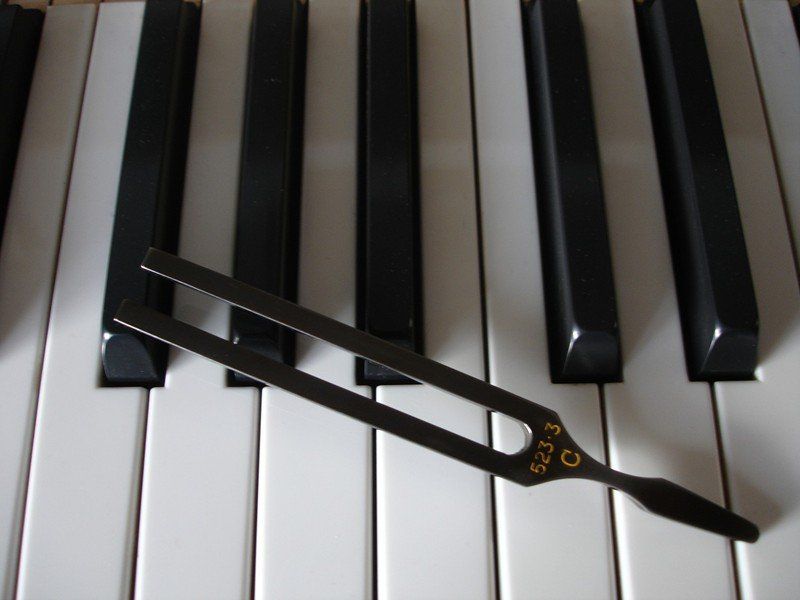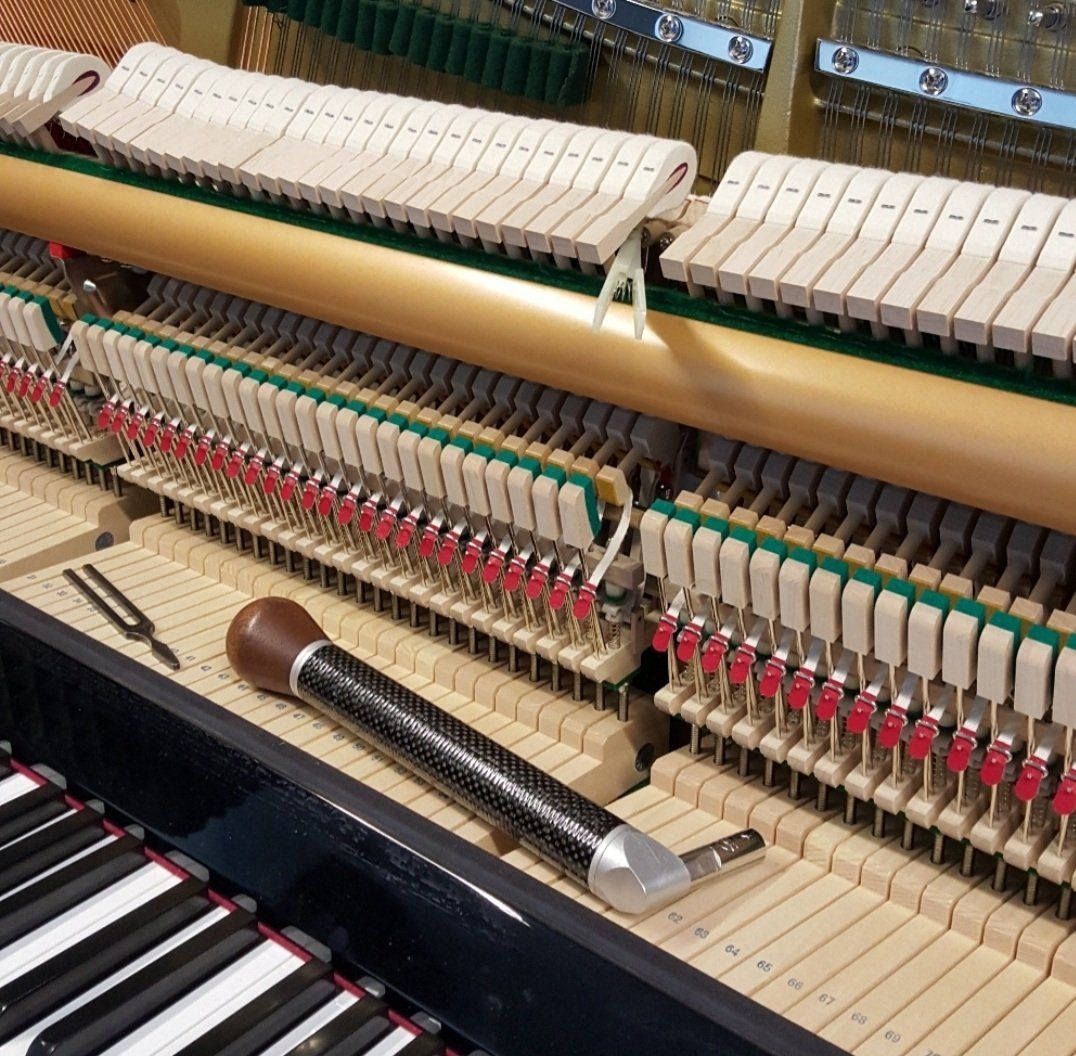Piano Tuning & Repairs Service
Full tuning & repairs service
A full tuning and repairs service is available with pianos always tuned to concert pitch (where possible), and any minor repairs are undertaken. This could be anything from a broken string to a sluggish note. Your piano at some point may need regulating, which can generally be carried out on site.
It is important to keep your piano tuned on a regular basis to ensure perfect performance. Your piano can have as many as 230 strings, all to be adjusted to harmonise with each other. A piano in the home should be tuned 2-4 times per year depending on conditions to maintain it's pitch and to help keep it in good working order. Your piano's playing mechanism (action) contains many working parts, all of which need to be specifically adjusted to enable the instrument to play properly.
I will travel anywhere on the Isle of Wight as well as on occasions to the Portsmouth, Southampton and Lymington areas. (Mainland calls are subject to a different pricing structure and availability).
Overhauls and Inspections
At some point, your piano may require further attention. It may need to be completely overhauled or more complex work carried out that cannot be done on site. In such cases arrangements can be made for the piano or necessary parts to be moved to a suitable location locally or a specialised workshop for the work to be undertaken. Being part of the Pianoforte Tuners’ Association means I have contacts across the country.
As a musician, I take pride in offering you work to the highest standards so that you can get the maximum pleasure and enjoyment from your piano.
If you are unsure about your piano's condition, an inspection can be arranged. Please contact us for further details.


How to look after your piano
Along with having your piano tuned regularly, between 2- 4 times a year, there are a number of things you can do to help keep your piano in good condition and the tuning stable. Like people and furniture, pianos prefer to been kept in an even temperature and humidity. They dislike extremes, either heat or cold, excessive dryness or damp. Ideally your piano should be kept in a "lived in" living room and played often, at a temperature between 18 and 21 degrees Celsius.
New pianos are made with wood specially seasoned and treated to withstand the effects of normal central heating and incorporate the use of special adhesives and plastics. This isn't the case with pianos made before central heating became so widely established in our homes, so some older pianos may struggle in modern heated environments. The worst aspect of central heating is the drying out effect it has on these instruments and their wood. Therefore you may need to get a humidifier should this be a problem, but always ask advice first.
Never put your piano in direct sunlight, against a radiator, against central heating pipes or backing onto a wall with heat behind such as a radiator or night storage heater. If you have underfloor heating place the piano where there are no underfloor pipes and do ask for advice. Heat resistant piano carpet is available to help protect your piano from damage in these circumstances.
Excessive humidity can occur in any building, on the inside of outside facing walls, under windows or in other parts of older properties. Do ask should you need further advice on this.
Take care of your piano's casework too and avoid putting things that may rattle on the top. But most importantly never put any vessels on your piano containing liquid like vases of flowers (or cups of tea and coffee!) as a spill could damage the piano action, keys or string work and require a costly repair.
Regular tunings/inspections are also important, just in case moth or anything else undesirable has taken up residence in the piano!
And finally when moving your piano take great care, always use a competent and experienced piano mover.
Following this simple guidance your piano should give you many years of pleasure, but if you would like further advice just contact us.
More details on looking after your piano can be found on the Pianoforte Tuners' Association website, which you can access via our Links page.
The hammers on this piano below have seized up due to excessive humidity!

Moths have devastated the felts on this piano - something to avoid!

